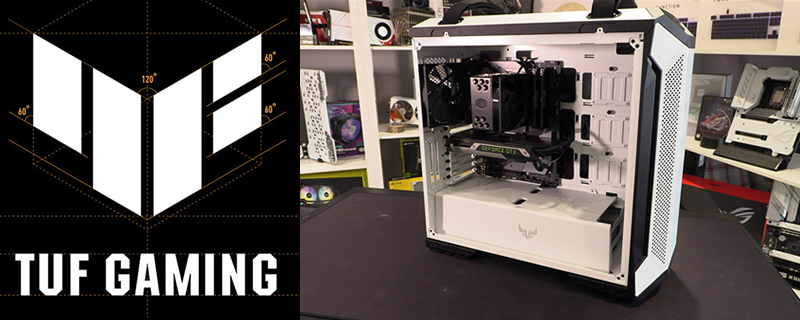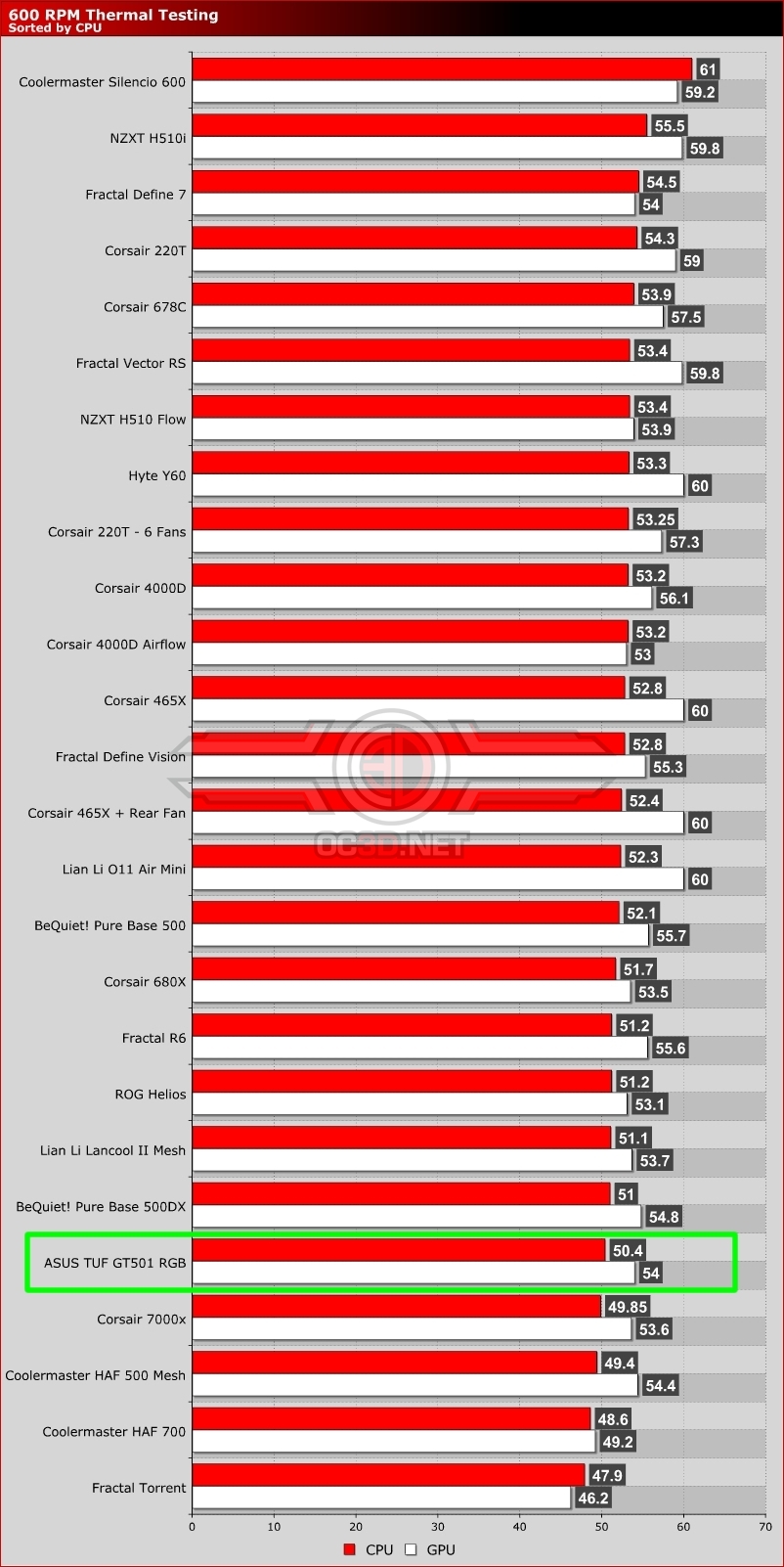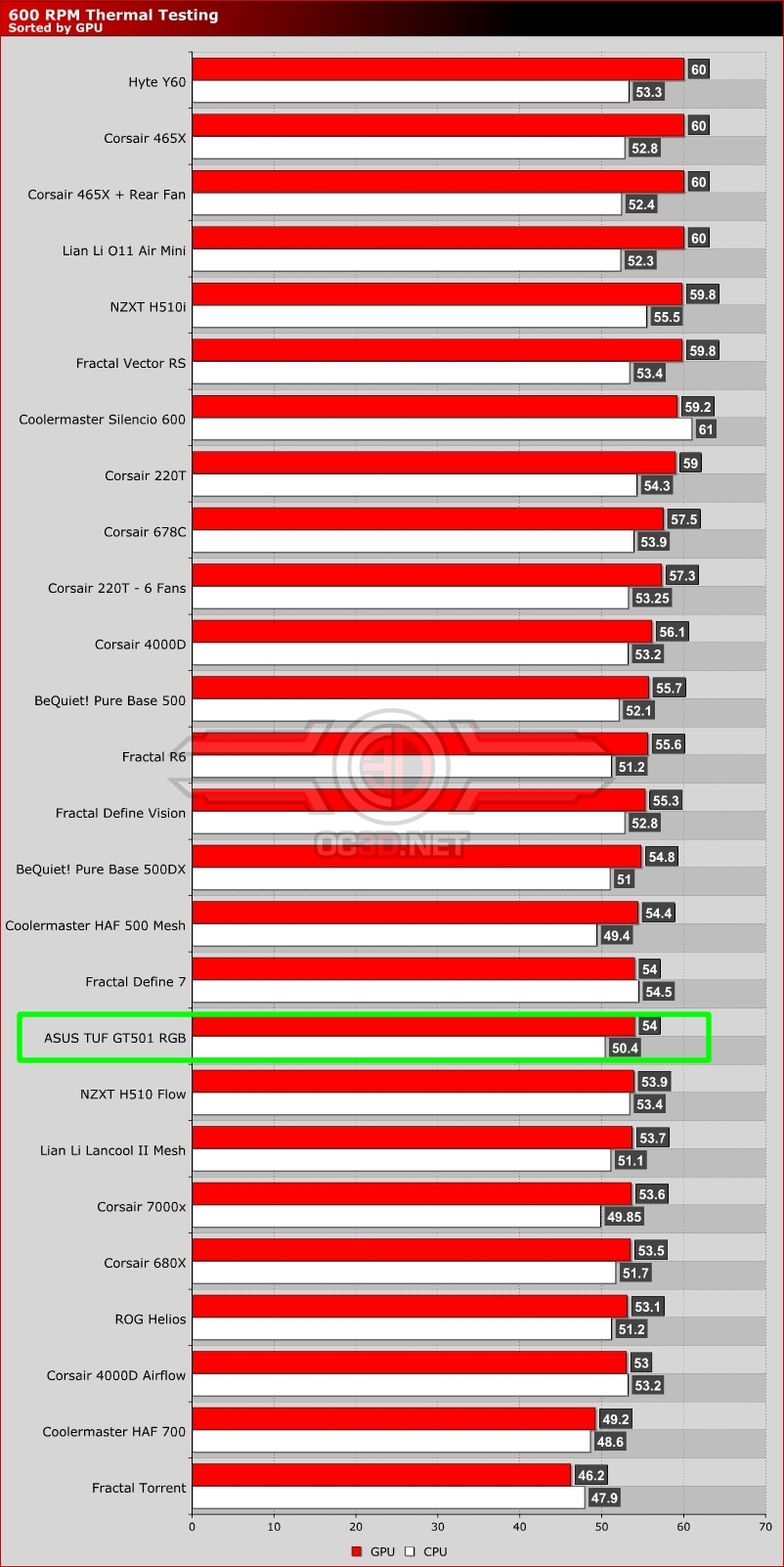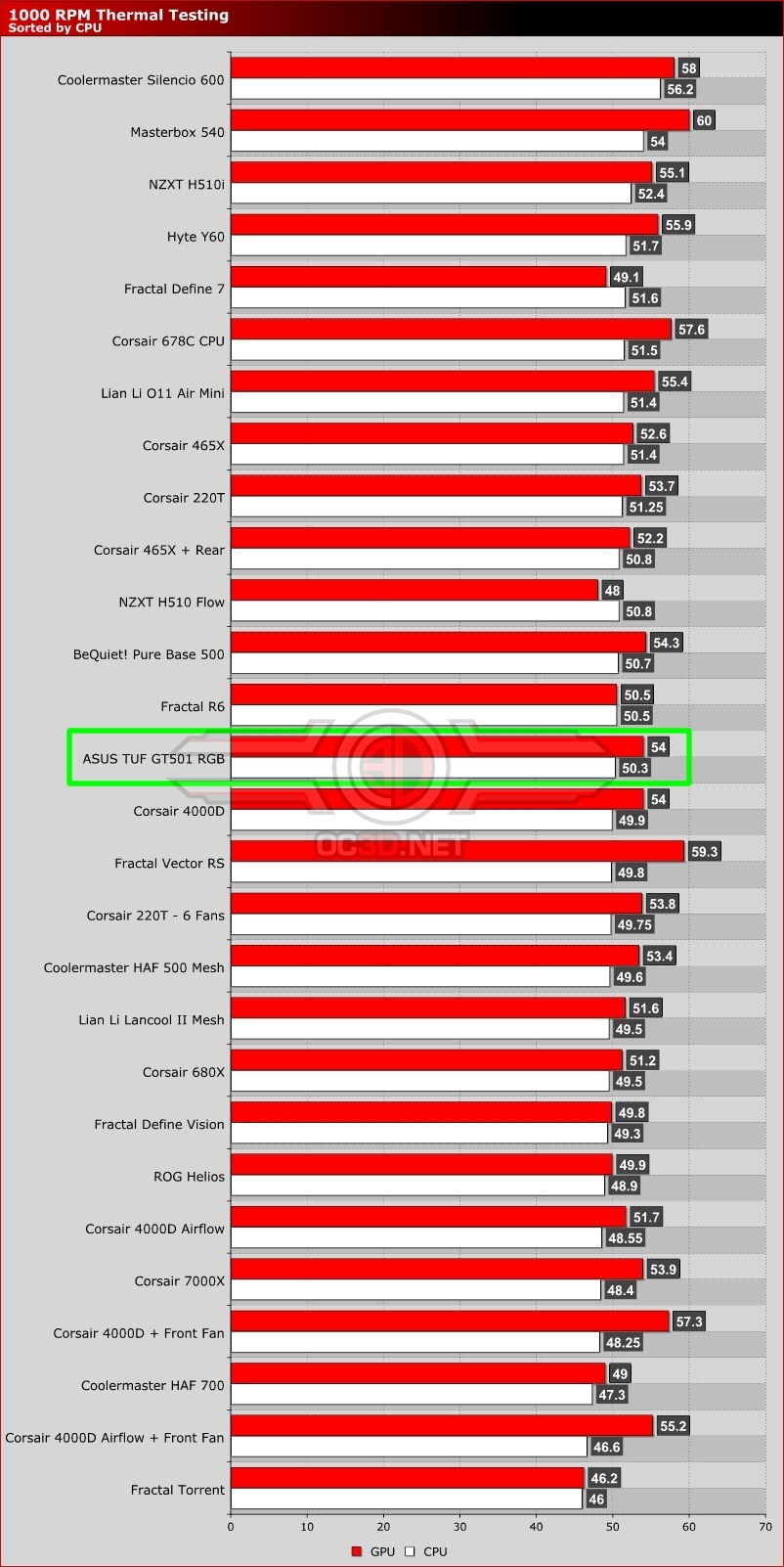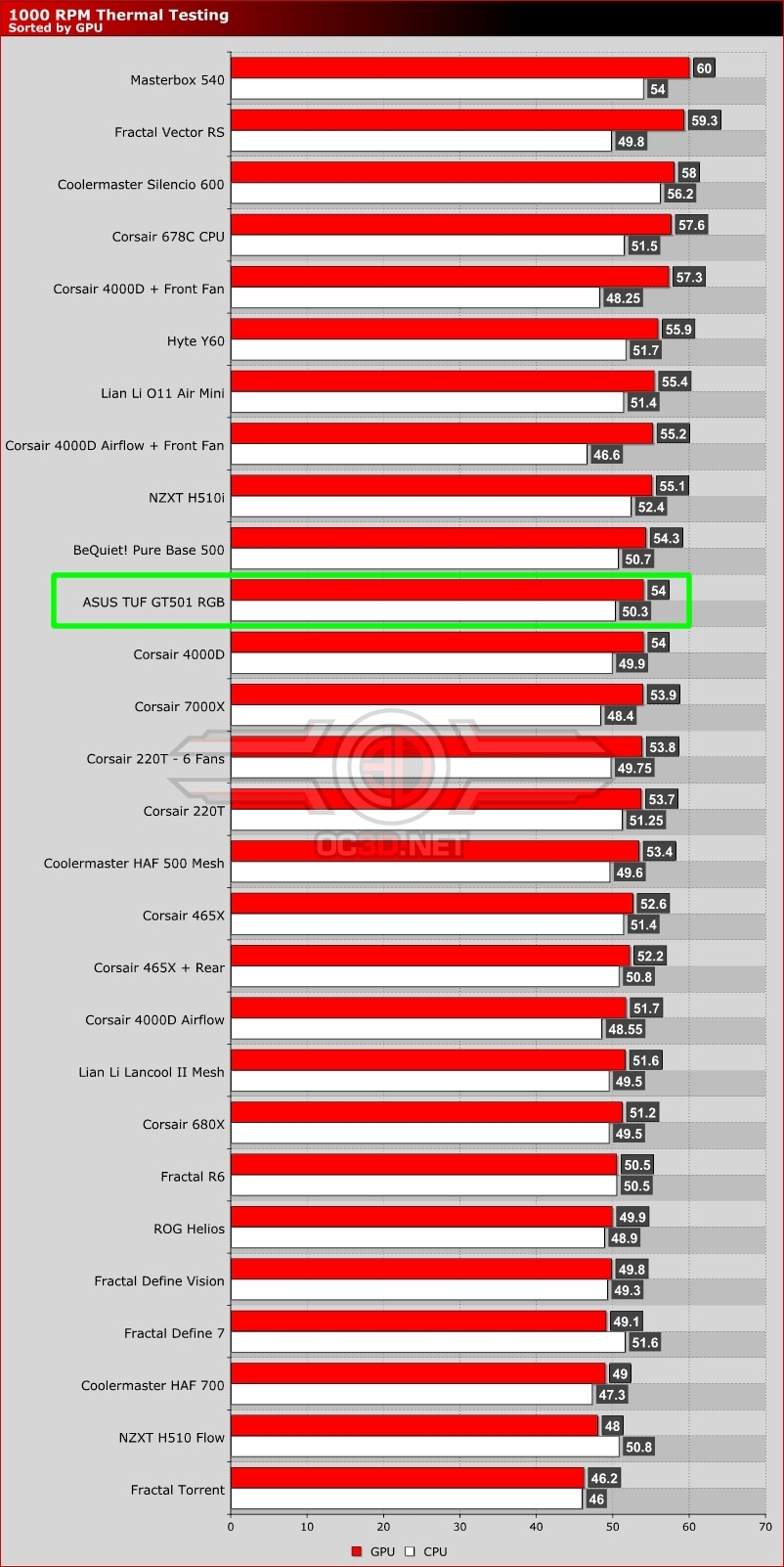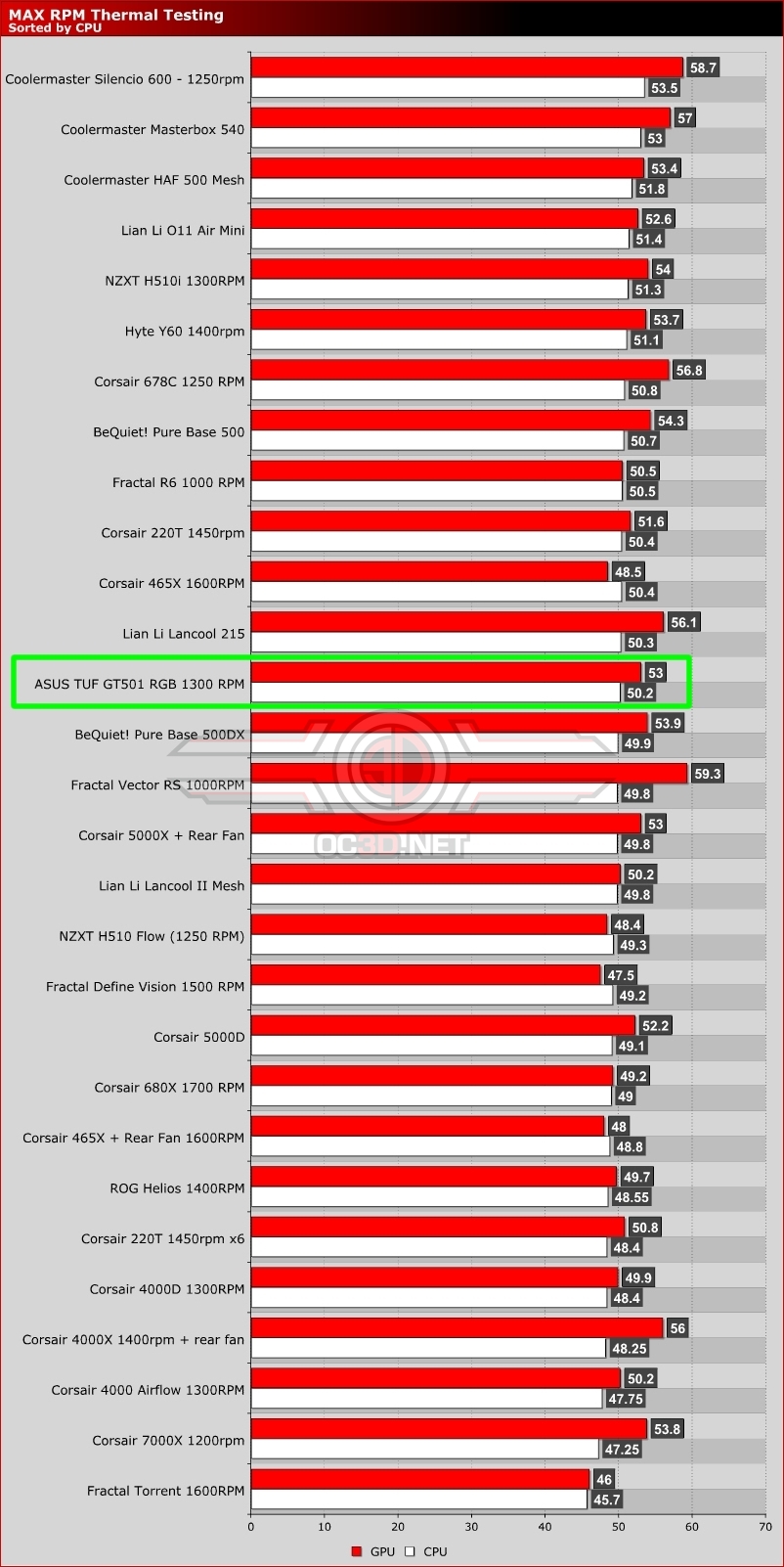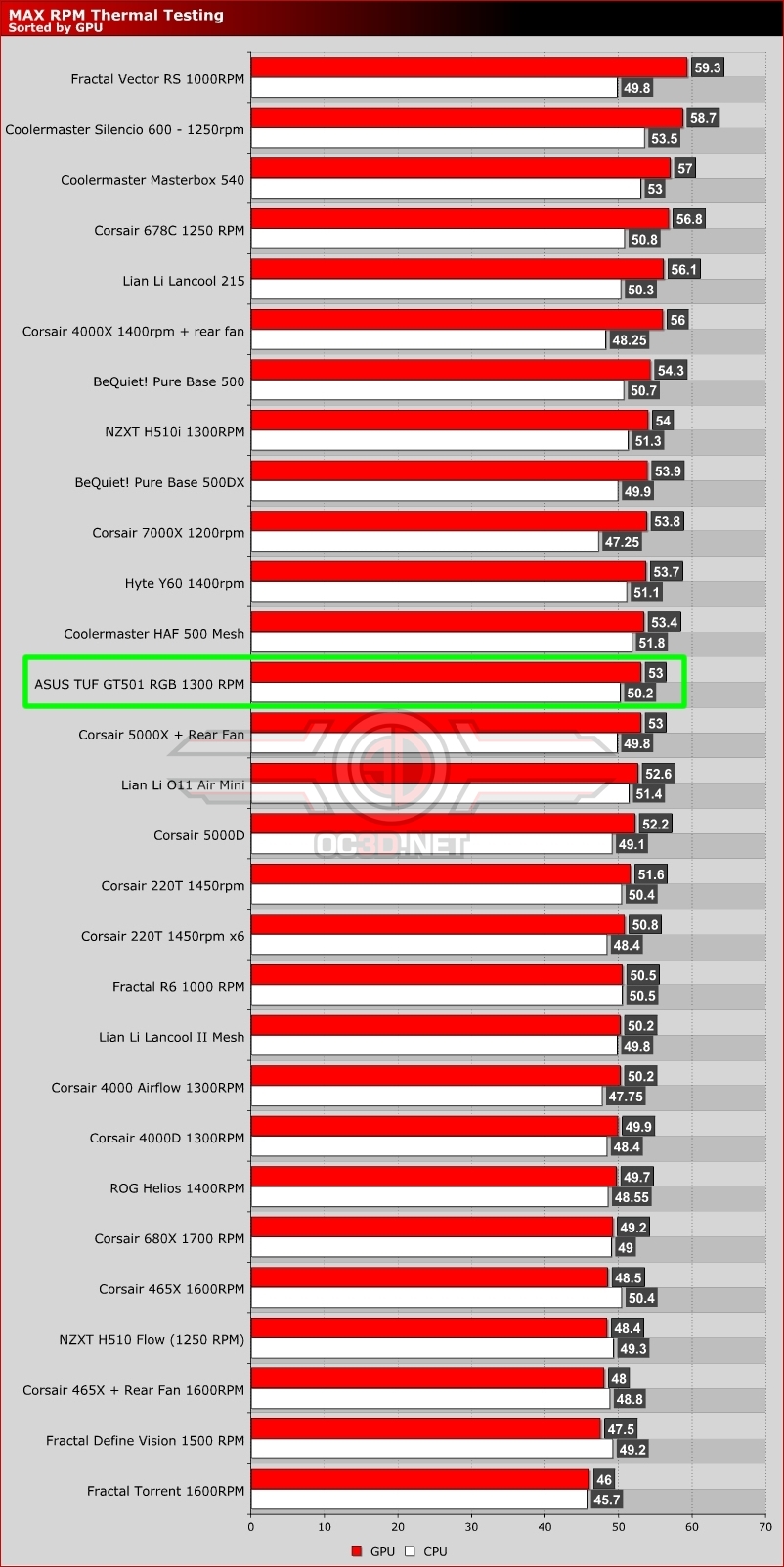ASUS TUF Gaming GT501 PC Case Review
Cooling Performance Â
Thermal performance is an essential factor for any PC case. Your system may look fantastic and seem silent from the outside, but all of that is for nought if your PC has the internal temperature of an oven. Your PC case needs enough airflow for your components to remain cool under load and to prevent any form of thermal throttling. For our test, we used the following hardware using fixed fan speeds (so that only the case and its included fans can influence thermal performance).
ASUS TUF Gaming GT501
Intel i9-9700K @4.8GHz at 1.2V
ASUS ROG Strix Z370-F Gaming @ 100% Current Capacity/ LL lvl16
Cooler Master Hyper 212 Black Edition @ 9V via Fan Speed Reducer
Nvidia GTX 980 Reference @ 60% Fixed Fan Speed
Corsair LP Vengiance LP (Grey) @ 3200MHz
Corsair MP500 M.2 NVMe SSD
Corsair RM550X Power Supply
The graph below showcases Delta temperatures with a controlled ambient temperature of 20 degrees Celsius.
600 RPM Fan Tests
With four fans within this case out of the box, the ASUS TUF Gaming GT501 is capable of delivering excellent thermal performance out of the box, with three fans acting as intakes while a single 140mm fans acts as an exhaust. Even at 600 RPM, the case performs well thermally, though it is worth noting that higher fan RPMs only have a limited effect on this case’s thermal performance.Â
We will note that users of the TUF Gaming 501 should turn the fans within this chassis down to lower RPM levels, as the case’s stock configuration, which sets the case’s fans to 100% speeds via a molex adaptor, is not quiet. Silence freaks will want to lower the RPMs of these fans, which is great news given this case’s great low RPM thermal performance.Â
1000 RPM Fan Speeds
Cranking fan speeds to 1,000 RPM has a limited impact on the GT501’s thermal performance. Maybe this case’s front panel is restricting additional airflow, preventing higher fan RPMs from pushing much more air through the system. Those small holes at the front of the GT501 do not give the case much breathing space, though the airflow that the case does get is used effectively.
Max Speeds
With its fans running at their maximum speeds, the TUF Gaming GT501 is not a quiet case. It isn’t a jet engine, but it isn’t something that we would like to sit beside all of the time. We like having a quiet office, and these fans are not quiet when running at their highest speeds.
The bad news for ASUS here is that we did not see any significant decrease in CPU or GPU thermals when using the GT501’s fans at 100%. Again, the case’s front panel design appears to be limiting airflow. Sadly, this means that this case does not use its fans to their maximum effectiveness, which is a shame.



